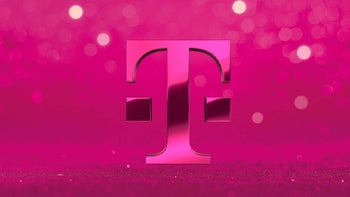Eric Schmidt says AT&T, Verizon to blame for China's global leadership in 5G

A few days ago, we told you that researchers led by Professor Zhang Chao of Tsinghua University’s School of Aerospace Engineering in China set a record for the fastest data streaming. Using technology that was called "6G," the team managed to stream 1 terabyte of data over 3,300 feet in one second. As impressive as that sounds, 6G standards have yet to be created although China does own 40% of the world's 6G patents compared to 35% for the U.S.
But 6G isn't the only technology where China is ahead of the U.S. if you listen to former Google CEO Eric Schmidt. The Wall Street Journal published an article written by Schmidt and Harvard professor Graham Allison that cites a 5G speed test taken by PC Mag in August 2021. The test revealed that at the time, only T-Mobile had 5G download data speeds faster than 4G LTE.
What do T-Mobile and China have in common when it comes to 5G?
This was due to the mid-band spectrum that T-Mobile had acquired in the Sprint acquisition. While Verizon and AT&T mistakenly thought that mmWave and its 1Gbps data speeds were the way to kick off their 5G rollouts, mmWave had some characteristics that made the high-band spectrum so limited in availability that many consumers thought that 5G was a joke.

T-Mobile's layer cake approach with mmWave on top, mid-band in the middle, and low-band on the bottom
The mmWave signals do not travel far and are easily blocked by structures, tree leaves, and other things that might get in the way of the signals. AT&T and Verizon figured that the public would go for the service with the fastest download data speeds, but if you cannot access mmWave, what is the point?
T-Mobile saw the 5G potential in Sprint's 100MHz+ of 2.5GHz mid-band spectrum and paid a whopping $26 billion for the company. As we stated a few weeks ago, mid-band spectrum is like the Goldilocks of 5G; while it doesn't deliver 1Gbps speed like mmWave, it does go farther than mmWave and can hit 300Mbps. The advantage here is that mid-band spectrum can offerin fast 5G speeds in more places than high-band.
And the 5G that blankets most of the U.S. is low-band. While these signals can travel great distances making them the choice for nationwide 5G and are not blocked by structures, the download data speed for low-band 5G is about the same as 4G LTE. That is why, when many of you see the 5G icon on your phone and rush to open the Speedtest.net app, you're disappointed at the results.
Schmidt and Allison blame AT&T and Verizon's 5G decisions which they say have stunted America's 5G growth leaving the country with an average 5G mobile data speed of just 75Mbps. Compare that to China's average 300Mbps 5G mobile internet data speed. And in South Korea, 5G mobile internet is even faster. Schmidt and Allison also note that despite the U.S. restrictions on Huawei, China remains the largest global supplier of 5G networking gear.
Countries such as Russia, Saudi Arabia, South Africa, and Turkey have been buying their 5G equipment from Huawei and have already deployed it to offer 5G connectivity to consumers in those countries.
China is outspending the U.S. on 5G
Looking at the following comparison will make you wonder how badly the U.S. wants to be the global leader in 5G. The Innovation and Competition Act requires that the U.S. put aside $1.5 billion to go toward spending on 5G through 2026. Through the same period, China plans on spending approximately $100 billion.
And while there have been 100,000 5G base stations deployed in the states, in China there are more than one million 5G base stations installed. The scary part is that 5G can be weaponized which is something that the Chinese appear intent on doing with 6G. The battle for 6G will be important, no doubt, but the battle for 5G is taking place now.
The good news for the U.S. is that the FCC has been auctioning off some more mid-band licenses. The bad news is that not all of these licenses are being used because of the FAA's concern that C-band signals (which are in the mid-band range) interfere with important controls on commercial aircraft.
The bottom line is that once 5G is unleashed, we will see self-driving vehicles and other innovations that we can't even conceive of at this time. The country that wins 5G leadership will have a huge advantage on the world stage. And right now, as Schmidt and Allison point out, that country is China.










Things that are NOT allowed: